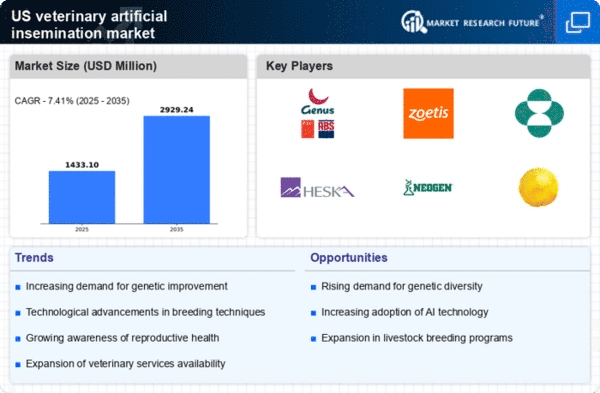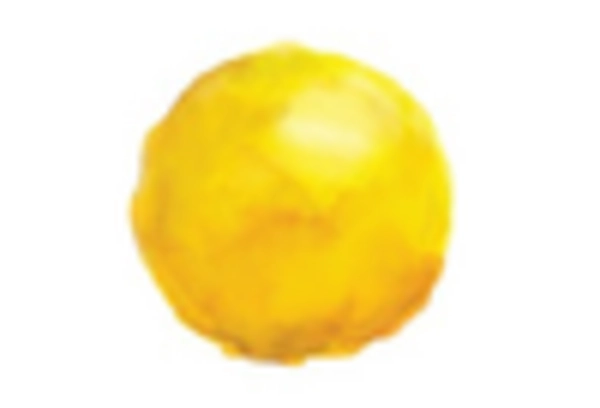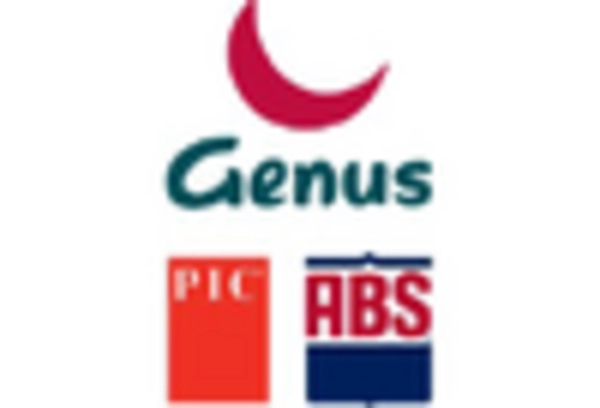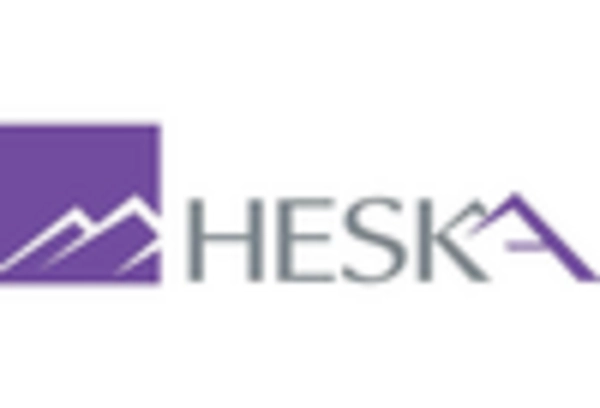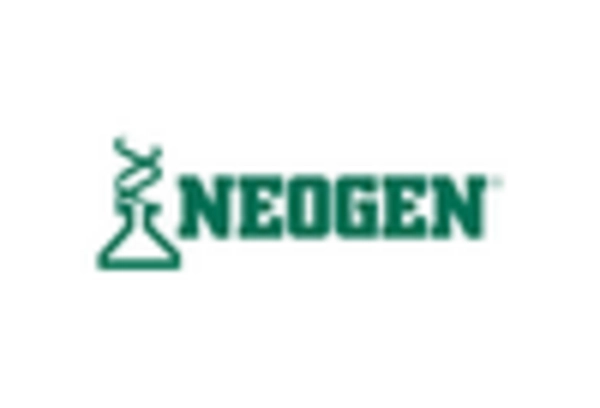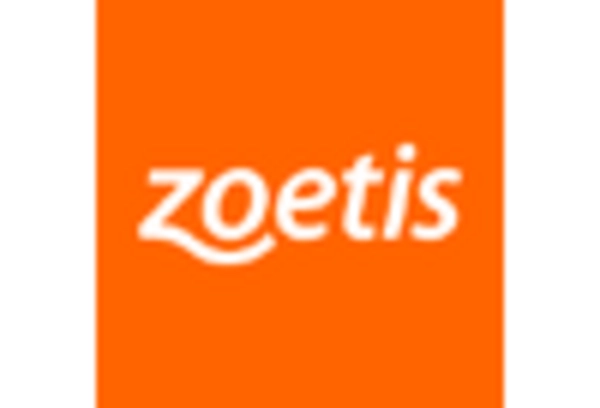Increased Focus on Animal Welfare
this market is increasingly influenced by a heightened focus on animal welfare. Stakeholders, including consumers and regulatory bodies, are advocating for humane treatment and ethical breeding practices. Artificial insemination is perceived as a more humane alternative to natural breeding, reducing stress and potential injury to animals. This shift in consumer preferences is prompting breeders to adopt artificial insemination techniques, thereby expanding the market. Furthermore, the veterinary artificial-insemination market is likely to benefit from the growing awareness of animal welfare issues, as more producers seek to align their practices with ethical standards.
Growing Awareness of Disease Control
this market is significantly impacted by the growing awareness of disease control in livestock populations. Artificial insemination helps mitigate the spread of sexually transmitted diseases among animals, promoting healthier herds. This awareness is particularly crucial in the context of zoonotic diseases, which can have implications for human health. As producers prioritize biosecurity measures, the adoption of artificial insemination is likely to increase. The veterinary artificial-insemination market may see a rise in demand as stakeholders recognize the importance of maintaining herd health and preventing disease outbreaks.
Rising Demand for Genetic Improvement
this market is experiencing a notable surge in demand for genetic improvement among livestock. Farmers and breeders are increasingly seeking to enhance desirable traits such as milk production, growth rates, and disease resistance. This trend is driven by the need for higher productivity and profitability in the agricultural sector. According to recent data, the market for artificial insemination in cattle alone is projected to reach approximately $1.5 billion by 2026, reflecting a compound annual growth rate (CAGR) of around 6%. This growing emphasis on genetic quality is likely to propel the veterinary artificial-insemination market forward, as stakeholders recognize the benefits of utilizing advanced reproductive technologies.
Economic Benefits of Artificial Insemination
The economic benefits associated with the veterinary artificial-insemination market are becoming increasingly apparent to producers. Artificial insemination allows for the efficient use of superior genetics without the need for maintaining multiple breeding males. This not only reduces costs but also enhances the genetic diversity within herds. Producers can achieve higher yields and better quality offspring, leading to increased profitability. Recent studies indicate that farms utilizing artificial insemination can experience a return on investment of up to 300%. As economic pressures mount, this market is likely to gain traction as a cost-effective breeding solution.
Technological Innovations in Reproductive Techniques
Technological innovations are playing a pivotal role in shaping the veterinary artificial-insemination market. Advancements in reproductive technologies, such as cryopreservation and embryo transfer, are enhancing the efficiency and success rates of artificial insemination procedures. These innovations allow for the preservation of genetic material and facilitate the breeding of superior livestock. As a result, this market is expected to witness substantial growth, with estimates suggesting a market value of $2 billion by 2027. The integration of technology into breeding practices is likely to attract more producers, further driving market expansion.


